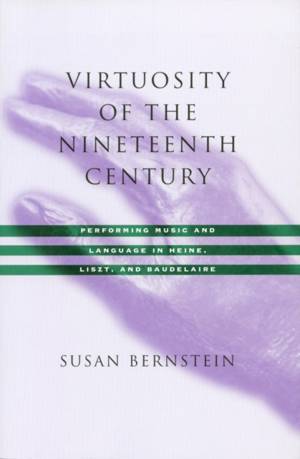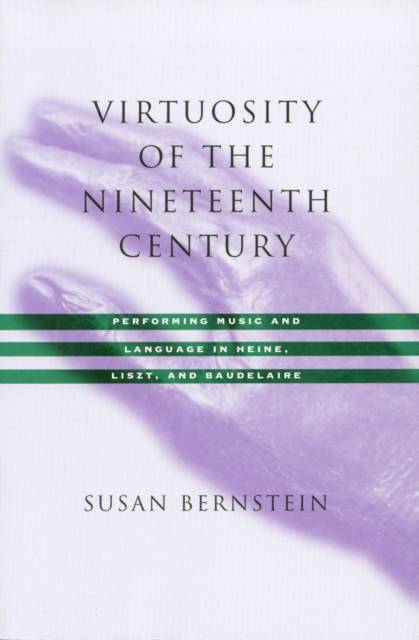
- Afhalen na 1 uur in een winkel met voorraad
- Gratis thuislevering in België
- Ruim aanbod met 7 miljoen producten
- Afhalen na 1 uur in een winkel met voorraad
- Gratis thuislevering in België
- Ruim aanbod met 7 miljoen producten
Omschrijving
A study of the reflexive relationship between music and language in the nineteenth century, this book maintains a discrete historical focus while drawing upon an aesthetic going back to problems of epic delivery in ancient Greece. Reading Romantic reactions to music together with linguistic and economic conflicts brought about by the rise of journalism, the book pursues the tension around performativity that both connects and separates music and writing.
Franz Liszt is the organizing figure in this detailed study of music in Heine and Baudelaire. The acclaimed virtuoso functions both as a metaphor for a musical mode of enunciation and as a historical referent. This dual status dramatizes the struggle at the heart of nineteenth-century aesthetics between poetic self-reference and realism's efforts to report the world accurately. Debates surrounding Liszt pinpoint the conflict between the view that locates sense in the process of its production and the contrary judgment privileging a stable meaning over the exteriority of its execution. This dualism also articulates the problematic relationship of the individual to general social and linguistic structures.
The book's analyses of nineteenth-century theories of correspondence, along with the thematization of the "other arts," point to the limitations of analogy, the impossibility of a general theory of art, and a crisis of identity--that is, a shared non-identity--that can be the only common property among different discourses, genres, and media. Virtuosity of the Nineteenth Century offers a fresh reading of relatively marginal texts by canonical figures, addressing questions about the relation between the arts, the possibility of critical description, and the function of performativity.
Specificaties
Betrokkenen
- Auteur(s):
- Uitgeverij:
Inhoud
- Aantal bladzijden:
- 252
- Taal:
- Engels
Eigenschappen
- Productcode (EAN):
- 9780804735056
- Verschijningsdatum:
- 1/12/1998
- Uitvoering:
- Paperback
- Formaat:
- Trade paperback (VS)
- Afmetingen:
- 157 mm x 234 mm
- Gewicht:
- 367 g

Alleen bij Standaard Boekhandel
Beoordelingen
We publiceren alleen reviews die voldoen aan de voorwaarden voor reviews. Bekijk onze voorwaarden voor reviews.












